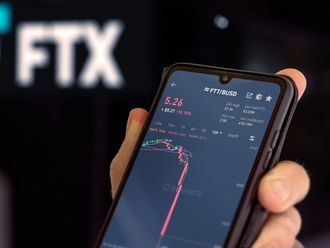Dubai: As the cliche goes, the best things in life are for free, earned media being one of them.
For decades, public relations (PR) executives have been passionately advocating the virtues brands and corporations can derive by simply ploughing some cash into PR-led campaigns, which marketers consider as more authentic and effective due to their disassociation from advertising.
But gone are the days when the only shadow of ambiguity that could be cast upon the results of a successful PR campaign was the size of the budget allocated for gifts handed out to journalists at press conferences as we have firmly transitioned to an age when there is no such thing as a free lunch. At least for marketers.
As PR has managed to seamlessly deploy and integrate social media while adjusting to an era where digital dominates, the sector quickly realised that it needed to change its own mindset first to compete in a totally alien environment — that of paid-for publicity.
Earned publicity had always been at the forefront of PR, the unique selling proposition that advertisers always loathed as perilous to their commercial advancement, but which clients always found alluring.
However, while always talked about as an integral part of the overall marketing-mix — and complementing advertising-led campaigns — PR’s impact has been disproportionate to the lowly budgets it attracted. It’s a trend that is gradually reversing.
But the successful integration of social media, digital PR and search engine optimisation (SEO) into the remit of PR agencies and the evolution of PR at large comes at a cost to the sector’s own reputation as the enabler of earned and trustworthy publicity.
Social media was the starting point when PR executives quickly realised that even the most compelling and creatively told narratives can’t stay afloat in timelines or handles. Facebook and other platforms started making sure that brands had to pay handsomely to stay in the spotlight and interact with their target audiences.
That in turn forced PR and marketing professionals opting to pay for reach in order to get in front of as much of their target market as possible — into doing what it takes to rise above the noise. This is already alienating millions of social media users.
Social influencers were next. While initially perceived by their followers as pure fans of brands, they gradually and very much willingly became employed rings in the publicity chain connecting PR agencies with brands. The fundamental premise and appeal of social influencer marketing is its perceived lack of bias.
But fees paid to social influencers to promote brands is now the norm, thus compromising its credibility and diminishing the effectiveness for the brands’ communication objectives.
As PR-savvy SEO professionals are fast becoming integral in the client service teams of PR agencies worldwide — a trend which according to LinkedIn is also followed by UAE-based outfits — it is inevitable to question the credibility of a brand’s earned publicity efforts. More so, when return on investment is measured in its ranking on Google Search’s first page, which has to be paid for, the number of eye balls and engagement on Facebook — which too is paid for — and the number of posts signed by brand ambassadors, also paid for.
With a recent report by Nielsen suggesting that 92 per cent of consumers trust earned media and word-of-mouth recommendations above all other forms of advertising, is PR in danger of becoming the victim of its own success?
If we do not self-regulate our profession, no one will do it for us. In the advent of the paid-for forms of PR spin-offs, we will soon run the risk of devaluing the very practice we have been advocating as the most credible communication means.
It doesn’t have to be that way. The unique set of skills that PR experts have acquired over decades of marketing evolution, due to the nature of what we do, has already put us in the enviable position of someone who entered a race late yet managed to cross the line first.
PR must set the rules, not just comply by them. We must introduce the paradigm shift, not just be part of it. We must lead, not follow.
The writer is Head of PR and Social Media at Al-Futtaim and author of “Back to the Future of Marketing – PRovolve or Perish”. Follow him on Twitter @georgekotsolios












